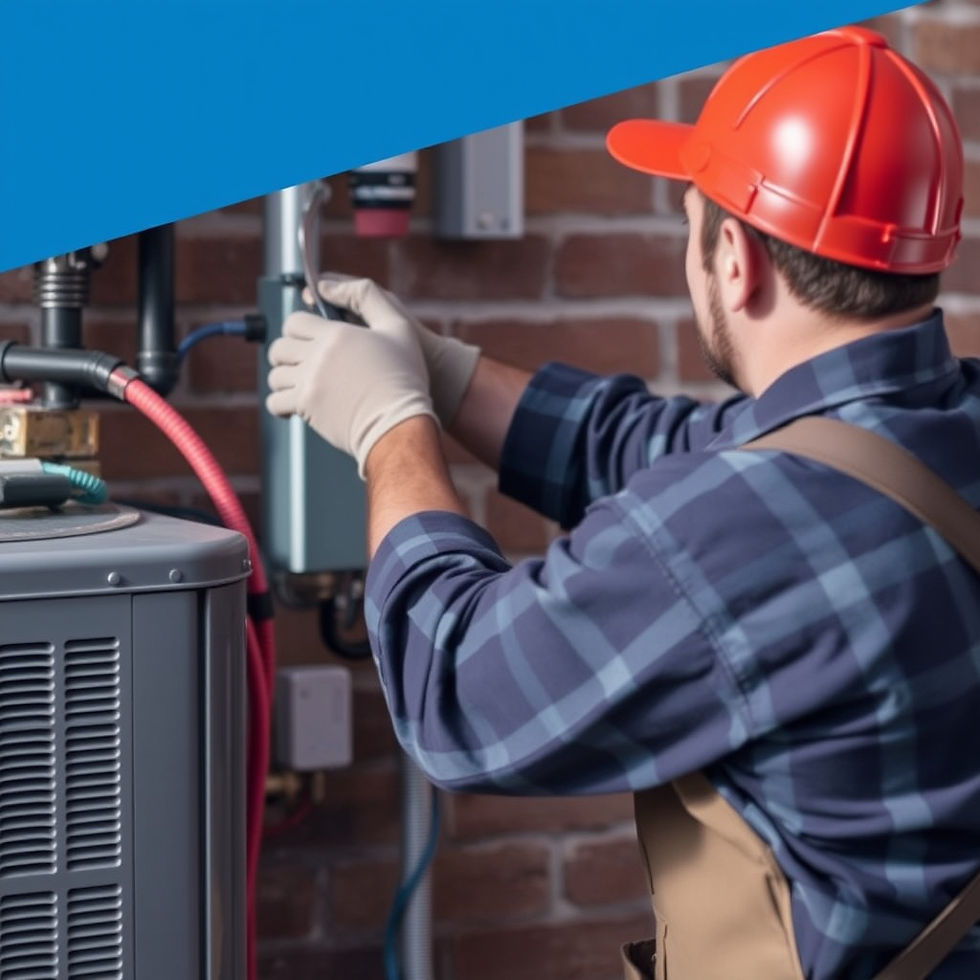Energy-Efficient Upgrades to Beat the Georgia Heat: What You Need to Know
- dmaling9
- Jun 25, 2024
- 4 min read

Summer in Georgia is synonymous with sweltering heat and humidity.
As temperatures soar, keeping your home cool can become a challenge, and energy bills can skyrocket. However, with the right energy-efficient upgrades, you can maintain a comfortable indoor environment while reducing your energy consumption and costs. Here’s what you need to know about making your home more energy-efficient to beat the Georgia heat.
1. Upgrade to a High-Efficiency Air Conditioner
One of the most impactful upgrades you can make is investing in a high-efficiency air conditioner. Modern air conditioners with a high SEER (Seasonal Energy Efficiency Ratio) rating use less energy to cool your home compared to older models. Look for units with a SEER rating of 16 or higher for optimal energy savings. While the initial cost may be higher, the long-term savings on energy bills and improved comfort make it a worthwhile investment.
2. Install a Programmable or Smart Thermostat
A programmable or smart thermostat can significantly enhance the efficiency of your HVAC system. These devices allow you to set temperature schedules based on your daily routine, ensuring that your system isn’t working hard when it’s not needed. Smart thermostats can learn your preferences and adjust settings automatically, and many can be controlled remotely via a smartphone app. This precise control can lead to substantial energy savings.
3. Seal and Insulate Your Home
Proper insulation and sealing are crucial for maintaining a consistent indoor temperature. Check for and seal any gaps or cracks around windows, doors, and ductwork to prevent cool air from escaping and hot air from entering. Insulating your attic, walls, and floors can also make a significant difference. Consider using materials like spray foam, fiberglass, or cellulose insulation for the best results. Improved insulation reduces the workload on your HVAC system, leading to lower energy usage and increased comfort.
4. Upgrade Your Windows
Windows play a significant role in your home’s energy efficiency. Consider upgrading to energy-efficient windows with low-emissivity (Low-E) glass that reflects heat away from your home. Double or triple-pane windows with gas fills between the panes provide better insulation compared to single-pane windows. If replacing windows isn’t an option, apply window films or install reflective shades and curtains to block out heat and reduce cooling demands.
5. Use Ceiling Fans Wisely
Ceiling fans can help circulate cool air and create a wind-chill effect, making it feel cooler than the actual temperature. This allows you to set your thermostat a few degrees higher without sacrificing comfort. Ensure your ceiling fans are set to rotate counterclockwise during the summer to push cool air downward. Turn off fans when you leave the room to save energy, as they only cool people, not spaces.
6. Optimize Your Landscaping
Strategic landscaping can provide natural cooling for your home. Planting shade trees, shrubs, and vines around your home can block direct sunlight, reducing the heat entering your home. Deciduous trees, which lose their leaves in winter, are ideal as they provide shade in the summer and allow sunlight to warm your home in the winter. Additionally, using reflective landscaping materials and light-colored mulch can help minimize heat absorption around your home.
7. Upgrade Your HVAC System
If your HVAC system is more than 10-15 years old, it might be time for an upgrade. Newer systems are designed to be more energy-efficient and environmentally friendly. Consider upgrading to a variable-speed or two-stage system, which can adjust its output based on the cooling demand, providing better temperature control and energy savings. Additionally, heat pumps are an excellent option for efficient heating and cooling, especially in milder climates like Georgia.
8. Add Attic Ventilation
Proper attic ventilation can help reduce the heat load on your home. Attics can become extremely hot during the summer, and without adequate ventilation, this heat can seep into your living spaces. Installing attic vents, such as ridge vents, soffit vents, or attic fans, can help expel hot air and reduce the strain on your HVAC system. This can lead to a cooler home and lower energy bills.
9. Consider Solar Energy
Solar energy is a sustainable and cost-effective way to power your home. Installing solar panels can significantly reduce your reliance on the grid and lower your energy bills. In Georgia, with its abundant sunshine, solar energy is a viable option for many homeowners. Additionally, solar panels can provide energy to run your air conditioning system, further enhancing your home’s energy efficiency.
10. Maintain Your HVAC System Regularly
Regular maintenance is essential to keep your HVAC system running efficiently. Schedule annual tune-ups to check for any issues, clean components, and ensure everything is working correctly. Replace air filters every 1-3 months to maintain proper airflow and reduce strain on the system. A well-maintained HVAC system operates more efficiently, lasts longer, and provides better cooling.
Beating the Georgia heat and maintaining a comfortable home doesn’t have to come with high energy costs. By investing in energy-efficient upgrades, you can improve your home’s cooling efficiency, reduce your energy bills, and contribute to a more sustainable environment. Whether it’s upgrading your air conditioner, sealing and insulating your home, or optimizing your landscaping, each step you take towards energy efficiency makes a difference. For expert advice and professional installation of energy-efficient upgrades, contact AComfort today and start enjoying a cooler, more cost-effective summer.




Comments